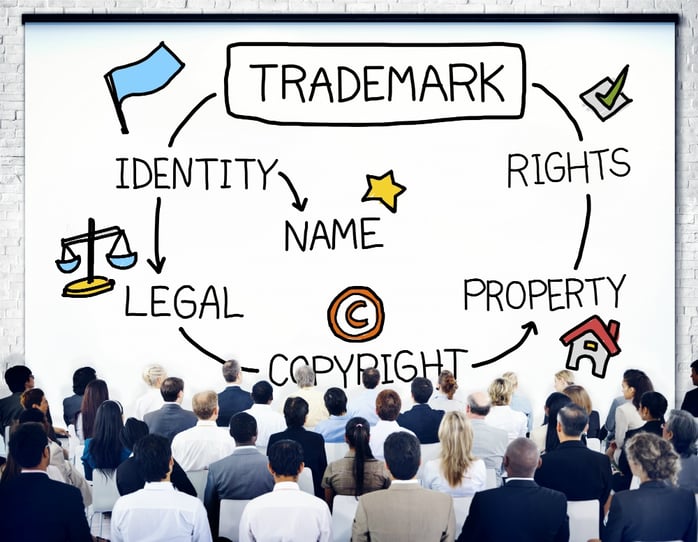For meeting planners, copying and distributing presentations and other event materials is de rigueur. Your attendees need materials, and you typically depend on your speakers to provide them.
But most event planners don’t consider the intricacies of U.S. intellectual property law when distributing event materials. How can you ensure that you’re on the right side of the law as you provide your attendees with the materials they want?
Images are everywhere
Images are the lifeblood of presentations, and they’re typically included in handouts as well. But photos and other images present the most problems when it comes to complying with copyright law.
Presentations are inherently visual, and attempting to draw in your audience with engaging stories is challenging, if not impossible, without compelling images. Although you might think lifting an image from a website is harmless, doing so often is illegal and can get you into trouble. Even if someone else — for instance, your keynote speaker — found the image, you still can be held liable as the conference organizer and distributor of the material.
The basics of intellectual property
U.S. copyright law hasn’t changed enough to accurately reflect the new requirements of the digital age, but it still regulates permissible uses of copyrighted works. Much confusion exists between copyright and trademark, although they apply to very different concepts.
Trademarks, which protect brands and their associated symbols, may occasionally pop up in speakers’ presentations. As long as you or your speaker are not implying a false affiliation and the logo is used simply to describe the company, legal experts advise that you likely won’t encounter problems.
The name Nike and the “swoosh” symbol are both trademarks. Legal trademark protection also can extend to other product aspects like packaging, such as the iconic Coca-Cola bottle.
Copyright, on the other hand, extends to any creative work, including written text, art or recordings. Copyright law applies as soon as an idea is put into tangible form, whether or not the copyright owner officially registers the work. Without permission, you or any of your event speakers may not publish, perform, or otherwise copy or distribute copyrighted works.
What about fair use?
Many business people cite “fair use” in defending the indiscriminate lifting of materials from the Internet for use in presentations and on websites. Although the concept of fair use does exist in the body of U.S. copyright law, it will rarely serve as a defense against copyright infringement.
Fair use holds that someone can infringe on a copyright without legal repercussions. However, the law is extremely complex, and most people are mistaken about how it works.
The intent of fair use is ensuring that copyright laws don’t infringe on free speech rights, making critical commentary difficult or impossible. Fair use applies only to very specific circumstances, such as educational uses, critiques, reporting, parody and research. For most commercial conferences and events, fair use does not apply.
How to make sure you’re in the clear
To ensure that you don’t run into problems with copyright or trademark infringement, consider the following steps:
- Assume that any image found online is copyrighted. Even if an image doesn’t include a watermark or a copyright symbol, chances are that it’s protected under copyright law. Works published after March 1, 1989, usually do not require notice of copyright, leading some business people to believe that such images are fair game.
- Know the exceptions. Works published before 1978 sometimes are considered to be in the public domain in the United States, and copyright coverage in any case typically lasts only 75 years. Works published by the government are always in the public domain.
- Ask your speakers to sign over copyright before you distribute presentations to attendees or upload them to a website. In addition, consider adding a clause to contracts that holds speakers responsible for securing copyright to any materials they incorporate.
- Understand what constitutes an original work. Simply converting a copyrighted work into another form does not negate the copyright. For instance, scanning a photo from a magazine to use in a PowerPoint presentation would violate copyright law, as would using a screen shot of a video.
- Know what copyright doesn’t protect. Copyright law generally does not apply to underlying ideas used in a creative work, and facts are never copyrightable. So expressing ideas you read on the Internet in your own words does not violate a copyright. However, doing so may constitute plagiarism without proper attribution.
- Don’t simply attribute. Giving attribution for a photo, image or other copyrighted work does not protect against copyright infringement.
- Ask for permission. In many cases, photographers and artists want exposure and will allow you to use their work with attribution, but you must ask.
- Don’t blame your designer. Even if a designer chose the images for a presentation or your website, you likely are ultimately responsible for following copyright law. Find out in advance how your designer sources images.
For a smooth event, understand intellectual property
With millions of images available online with just the click of a mouse, it’s likely that one of your speakers will run afoul of intellectual property rules at some point. To avoid problems, make sure that your contracts address copyright and trademark law, and assume that any images found online are copyrighted.
Source
http://meetingsnet.com/association-meetings-resources/6-things-meeting-planners-need-know-about-copyright, http://eventplannersassociation.com/blog/copyright-trademark-law-101/, http://cyber.law.harvard.edu/metaschool/fisher/domain/tm.htm, http://lifehacker.com/5992419/the-best-ways-to-be-sure-youre-legally-using-online-photos, http://www.wikihow.com/Avoid-Copyright-Infringement, https://www.quora.com/Is-it-illegal-for-me-to-use-a-trademarked-logo-in-a-presentation?share=1



